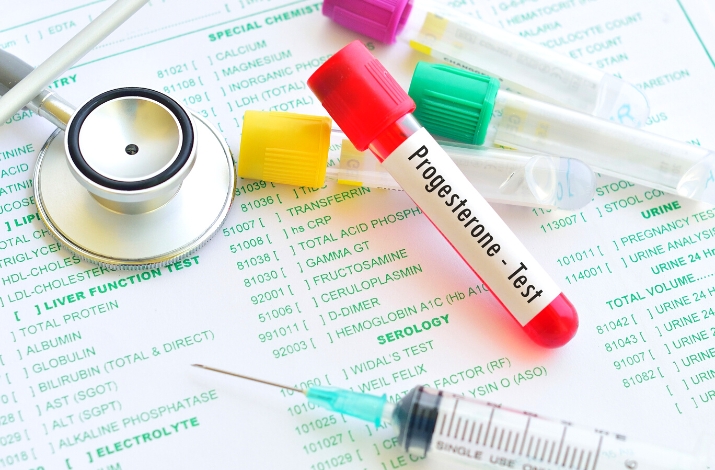The metabolic effects of progesterone

Progesterone is one of the most relevant sex hormones in women. Its most well-known role is the influence progesterone has in pregnancy–it is literally the hormone of gestation (i.e., pregnancy). But it’s progesterone’s several metabolic effects that influence the body outside of the narrow windows of pregnancy.
The female ovulatory cycle is a complicated symphony of hormones playing a dynamic crescendo and decrescendo. Throughout the first part of the ovulatory cycle, progesterone is a quiet contributor, nearly totally absent. However, following ovulation (i.e., the release of an egg from an ovary), progesterone suddenly takes center stage, rocketing from the lowest to the highest of all the female sex hormones. The change is dramatic and almost without equal–progesterone will increase by 100 times! If pregnancy occurs, progesterone remains elevated, helping promote changes in the body to facilitate growing a baby. However, if no pregnancy occurs, progesterone levels quickly take their seat. Of course, it’s this latter scenario that typifies a regular ovulatory cycle. And it makes a metabolic impact on the body.
Progesterone promotes direct and indirect changes at fat cells, collectively coordinating efforts to promote greater fat storage. Firstly, progesterone acts directly on fat cells to activate processes that increase the degree to which the fat cell creates and stores fat, growing the fat cells and increasing fat mass in the body[1]. At the same time, progesterone also wakes the sleeping giant when it comes to fat cell growth–the hormone insulin. Progesterone causes the beta-cells of the pancreas to release more insulin [2], which adds even more push to the growth signal at fat cells from progesterone–nothing stimulates fat cell growth quite as well as insulin.
Of course, it’s difficult to promote fat cell growth without fuel. Thus, it’s little surprise that at the same time progesterone is telling fat cells to grow, it’s also telling the brain to eat more. That’s right–progesterone stimulates hunger [3]. This certainly explains why, during the ovulatory cycle, hunger will often climb in the days following ovulation.
Despite all of these effects, progesterone doesn’t singularly promote fat gain in the body. In fact, progesterone also acts as a boost to metabolic rate. And it’s not small. Progesterone can increase metabolic rate in the few days after ovulation by as much as 10% [4]! That kind of change in metabolic rate isn’t common and it’s further evidence of just how strong an effect progesterone has on human metabolism.
In the end, human metabolism is a wonderfully complex system with several hormones having a role. Even though progesterone is typically only viewed through the lens of pregnancy, its obvious metabolic effects have a clear influence on the weight changes and hunger of the ovulatory cycle in women.
References
- https://www.sciencedirect.com/science/article/pii/S002192581946016X
- https://eje.bioscientifica.com/view/journals/eje/181/6/EJE-19-0352.xml
- https://pubmed.ncbi.nlm.nih.gov/22281161/
- https://pubmed.ncbi.nlm.nih.gov/3766447/
This article is for informational and educational purposes only. It is not, nor is it intended to be substitute for professional medical advice, diagnosis, or treatment and should never be relied upon for specific medical advice.



















